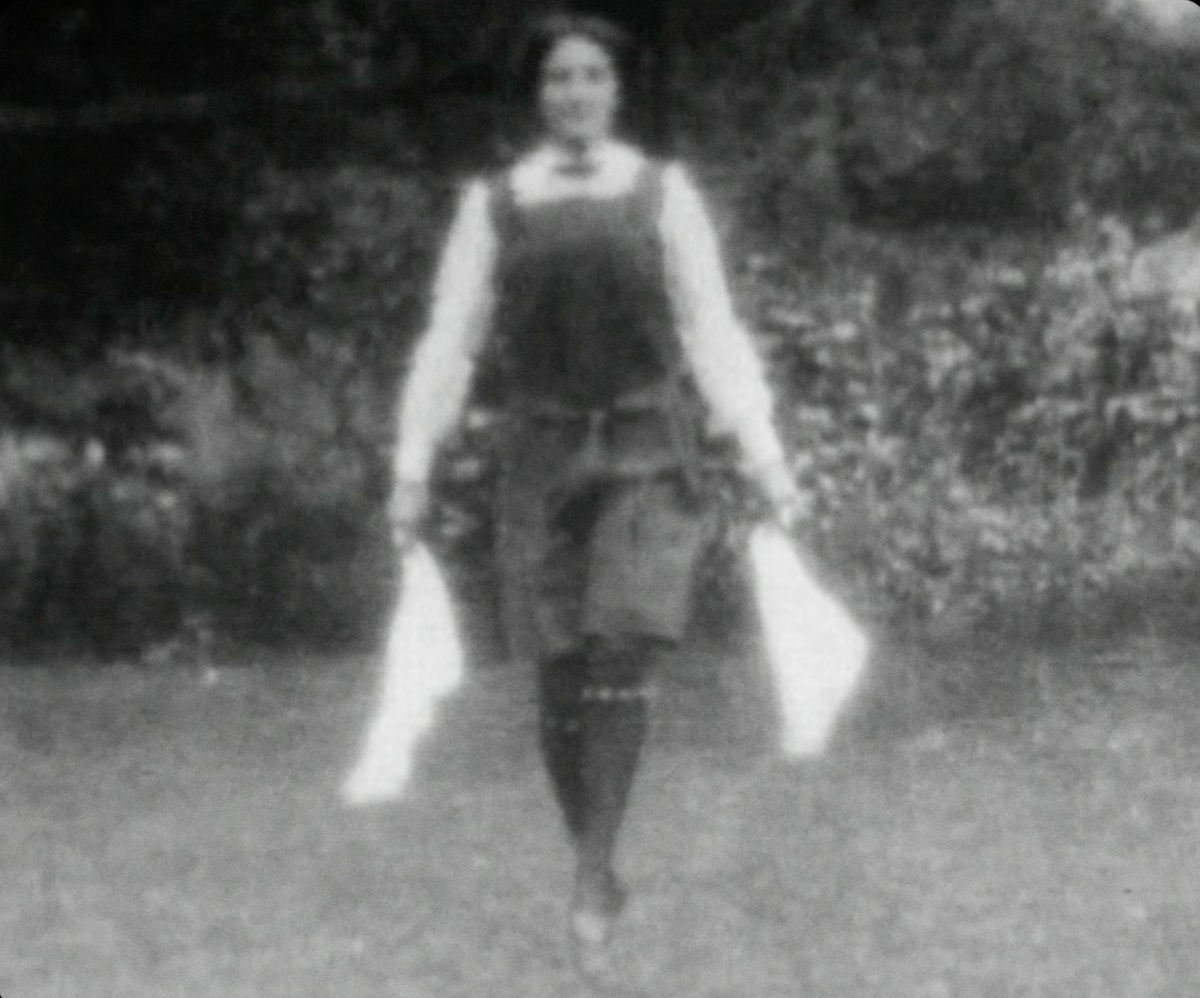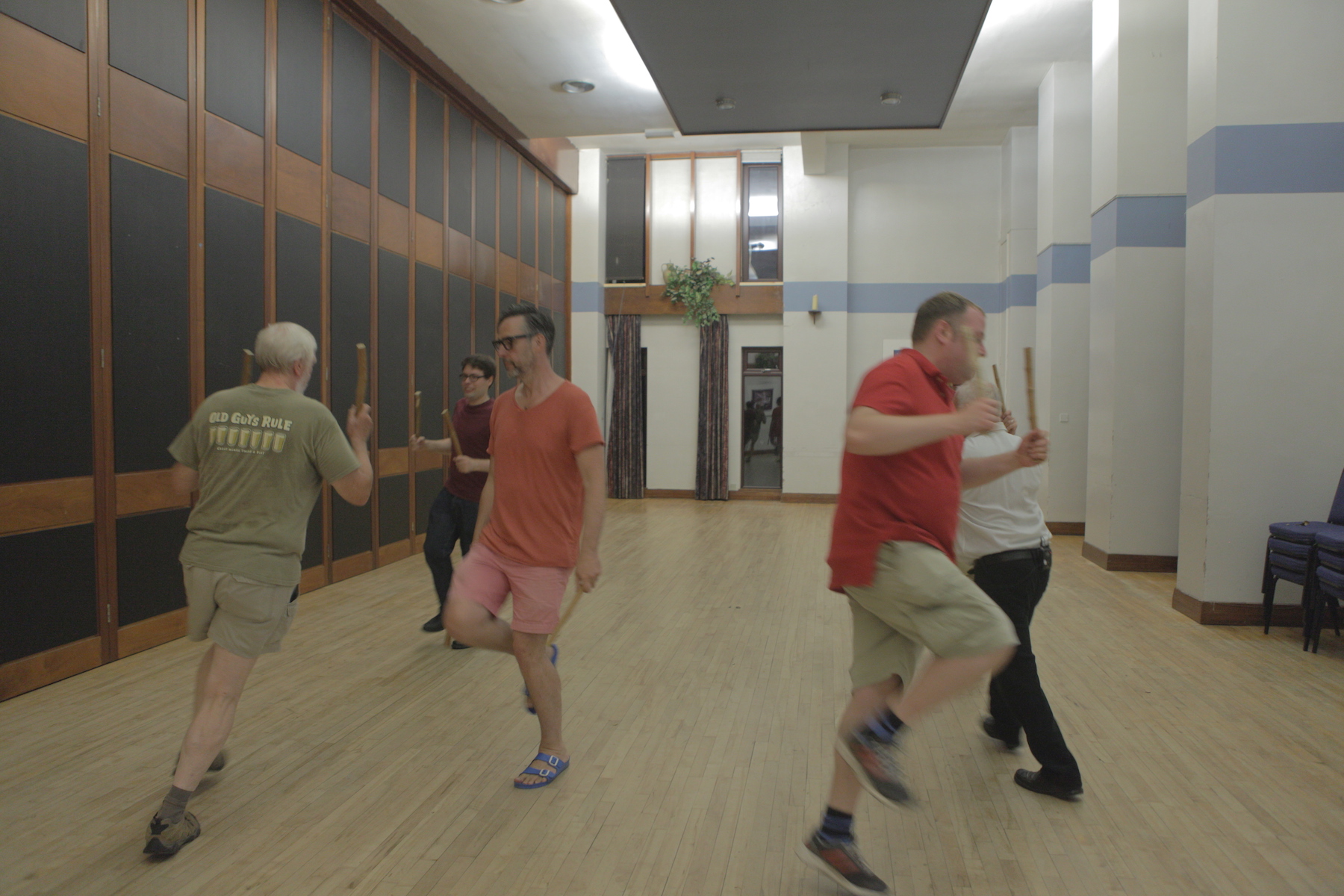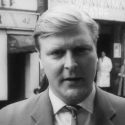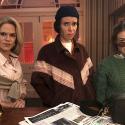Halfway through filming For Folk’s Sake, a documentary for BBC Four about Morris dancing, I received a package in the post that would dramatically change the course of the programme. It was from my mother. Inside were a number of yellowing newspaper articles from the 1920s and 1930s and some dog-eared black and white photos. The newspaper clippings showed photographs of capacious lawns outside stately homes and on the hot summer grass were vast hordes of people folk dancing.
All the women had bobbed hair and wore long white skirts and the men were, to all intents and purposes, in cricket whites. There was a tangible sense of gay abandon as if at any moment Gatsby might appear on the terrace. But there, among the throng, were two very young faces I found vaguely familiar, smiling and dancing, clutching hankies or some sticks and faded by time. It was my grandparents.
 Up until that moment in my life I had never felt much affinity for Morris dancing. If ever I had encountered Morris dancers in a village or shopping centre I’d never stop to watch or even slow down, I just kept on walking. Morris dancing was always something that belonged to a part of Englishness that I felt was incurably naff. But now as I read the accompanying letter from my mother a strange feeling came over me. My grandparents had met and fallen in love at a folk dancing event and that meant I owed my very existence to Morris dancing!
Up until that moment in my life I had never felt much affinity for Morris dancing. If ever I had encountered Morris dancers in a village or shopping centre I’d never stop to watch or even slow down, I just kept on walking. Morris dancing was always something that belonged to a part of Englishness that I felt was incurably naff. But now as I read the accompanying letter from my mother a strange feeling came over me. My grandparents had met and fallen in love at a folk dancing event and that meant I owed my very existence to Morris dancing!
For the three months prior to this I had been following the story of the oldest male-only Morris dancing organisation in the country, The Morris Ring. The Ring had taken the controversial decision to allow women to join as a way of stemming the tide of dwindling numbers that threatened its very existence. While making the film I had been invited to dance with my local team, the Manchester Morris Men where, at 51, I was the closest thing they had to a young raw talent. Little George was teaching me the dance Constant Billy and the plan was that I would perform it in public before the end of the season. He told me to practise at every opportunity, not just when I was with him during our one-to-one sessions or with the rest of the team on practice nights, but also at home while washing up after dinner or while brushing my teeth before bed and also while picking up the kids from school. My youngest son Harry put a stop to the latter as soon as he noticed his father coming through the school gate towards him, skipping. (Pictured below: Richard Macer practising)
For a while the producers and I discussed cutting a sequence similar to that in the first Rocky film where, in the course of a short montage, Sylvester Stallone’s character transforms from no-hoper to all-conquering hero. The problem is I can’t do one-armed press-ups and the rousing Rocky theme lost some of its impact when performed on a penny whistle. But even so, I put the hours in. And in October, when the sky was overcast and there was drizzle in the air, I made my debut outside a pub in Mossley at the foothills of the Pennines. No one was there to see it apart from a man with a dog and a woman who was smoking out of her bedroom window. But afterwards George and the men gave me a pewter tankard and I felt properly assimilated into that rarefied world of sticks and bells. By now I had begun to see what I had been blind to in the past: that beneath the paraphernalia of flowers and bells there is something quite beautiful about Morris dancing. It’s the way it unites a group of elderly taciturn men for the simple enjoyment of dance and celebration of life.
- For Folk's Sake: Morris Dancing and Me is on BBC Four at 9pm on Monday 1 April and then on the iPlayer
- More First Person Articles on theartsdesk














Add comment